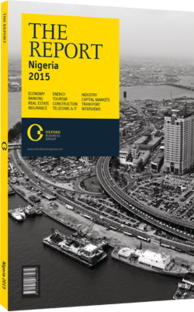Godwin Emefiele, Governor, Central Bank of Nigeria (CBN), on the bank’s role in driving growth in specific sectors: Viewpoint

For some time, the dominant school of thought regarding central banking was that focusing on low inflation will eventually lead to greater growth, an increase in employment-generating activities and poverty reduction. However, early and recent evidence of central banking in places such as the US, the UK, Japan and France indicates that supporting selected economic sectors using direct methods of intervention has been an essential task of their central banks. As Gerald Epstein encapsulates in “Central banks as agents of economic development” (2005), “virtually all central banks, including the Bank of England (BOE) and the US Federal Reserve (the Fed), have used direct means to support economic sectors. And this has not simply been a matter of historical aberration, but rather, it has been an essential aspect of their structures and behaviour for decades on end. In particular, a crucial role for both the BOE and the Fed has been to promote the financial sectors of their economies, and especially, to support the international role of their financial services industries.”
Nigeria has seen impressive GDP growth rates over the past seven years. Yet there is an absence of a corresponding reduction in the unemployment rate, which had risen to 23.9% in 2012, up from 13.9% in 2000. Particularly worrisome is the high rate of youth unemployment. With an annual addition of 1.8m Nigerians to the labour pool, the CBN cannot afford to concentrate only on price and monetary stability. Additional measures are required to identify productive sectors of the economy and channel credit towards these sectors, while imposing proper monitoring and performance measures in order to ensure that the goals of increased employment and poverty reduction are attained.
This will require a review of the CBN’s development finance programme and the agencies responsible for the disbursement of funds, improving monitoring capacity, and developing performance targets relevant to our focus on generating employment and poverty reduction. The measures of the CBN will not work in isolation. We will work with the fiscal authorities on reducing other structural distortions to productive growth, as this will enhance access to credit, and stimulate growth and employment generation.
The core principle here is that the CBN will act as a financial catalyst by targeting predetermined sectors that can create jobs on a mass scale and significantly reduce our import bills. The CBN would deploy developmental initiatives to create an enabling environment with appropriate incentives to empower innovative entrepreneurs to drive growth and development. It is important to stress that the CBN would not be targeting individual companies but rather specific sectors. We would establish rules and criteria that create a level playing field, so that anyone who qualifies can benefit from these schemes. Some of the CBN’s developmental functions will include credit allocations and direct interventions in key sectors such as power, agriculture, oil and gas, and health. While playing an active developmental role, the CBN will not only operate within the law and its mandate but will also be transparent about strategic and appropriate interventions.
Funding for small and medium-sized enterprises (SMEs) in Nigeria has largely been viewed from a social development perspective, with the goal of reducing poverty through job and wealth creation. Going forward, we propose a business approach to funding SMEs, which requires strong private sector involvement. The proposed framework will combine the profit motives of the private sector with the government’s development objectives. The CBN currently has a number of initiatives – including financing SMEs with a focus on female entrepreneurs – that will be administered through state-owned or private microfinance banks. While the private sector invests more risk capital in the selected companies, CBN funds will focus on resolving challenges such as access to collateral, enterprise development support, development of a nationwide credit scoring system and so on.
The above is adapted from a speech given at the Central Bank of Nigeria in Abuja, Nigeria on June 5, 2014.
You have reached the limit of premium articles you can view for free.
Choose from the options below to purchase print or digital editions of our Reports. You can also purchase a website subscription giving you unlimited access to all of our Reports online for 12 months.
If you have already purchased this Report or have a website subscription, please login to continue.

